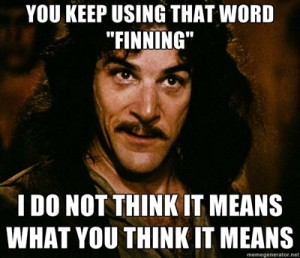

I’ve written in the past about why shark fin bans might not be the best tool for the conservation and management of sharks. Though specific details vary, these so-called “blanket bans” typically make it illegal for anyone to buy, sell, or possess shark fins regardless of the source *. Additionally, to date most of these fin bans have taken place in a few U.S. states and Canadian towns. If the goal of these state-level fin bans is to reduce the supply of fins to the global market, proponents should consider that according to TRAFFIC, more than 95% of the supply of shark products comes from countries outside of the U.S. and Canada. Even if every U.S. state passed a fin ban, it would have a negligible direct impact on global supply. Additionally, the United States has some of the most sustainably managed shark fisheries in the world (hammerhead sharks and a few others are an exception). We want other countries to emulate out management practices, not to remove our management practices from the global marketplace.
If the goal of these local fin bans is to reduce global demand, proponents should consider that the overwhelming majority of the demand for shark fin soup is in China and Southeast Asia, where passing such bans will pose a significant challenge. Some proponents of fin bans say (after the negligible impact on supply and demand is pointed out) that fin bans help with “raising awareness of the problem of overfishing of sharks”. While these fin bans do result in (relatively) positive media coverage for shark conservation, “raising awareness” is not the publicly stated goal of these bans. If your goal is to educate people about a problem, educate people about the problem.
Instead of inflexible and ineffective fin bans that penalize fishermen who have adopted best practices * without impacting the global market, I’ve advocated for a science-based approach to sustainable shark management following the 10 basic principles in line with what has been laid out in the United Nations Fisheries and Aquaculture Organization’s International Plan of Action for Sharks and IUCN Shark Specialist Group guidance. These principles include banning finning of sharks by requiring that carcasses be landed whole (recall that finning is a specific fishing practice not synonymous with the fin trade), using science-based quotas to manage the fisheries of sharks whose populations can support a fishery, and restricting the harvest of species whose populations cannot.
Recently, the United States National Marine Fisheries Service (which, once again, manages some of the most sustainable shark fisheries on Earth) has started to officially speak out against state level fin bans.
